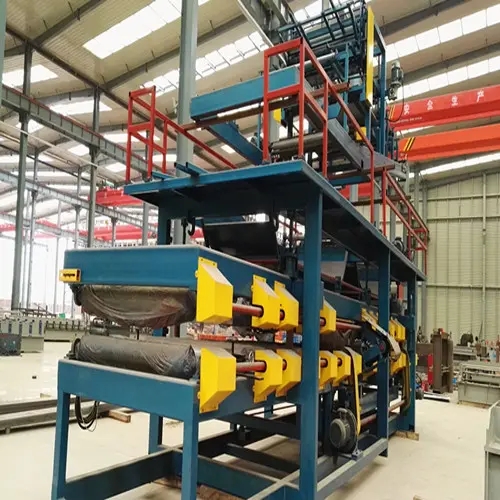
The Evolution and Importance of Metal Forming Machines
Metal forming is a critical process in manufacturing, enabling the transformation of raw materials into precise and functional components. At the heart of this process are metal forming machines, which have evolved significantly over the years to meet the demands of modern production techniques. These machines are essential in various industries, including automotive, aerospace, construction, and electronics, thanks to their ability to produce high-quality metal parts with superior precision and efficiency.
Understanding Metal Forming Machines
Metal forming machines encompass a wide range of equipment designed to shape metal into desired forms without removing material. This can include processes such as bending, drawing, forging, rolling, and stamping. Each technique has its own set of machines tailored to achieve specific results. For example, hydraulic presses are commonly used in stamping and forging, while CNC (Computer Numerical Control) bending machines offer automation and precision in shaping metal sheets.
Types of Metal Forming Machines
1. Press Brakes These machines are designed to bend metal sheets into various angles and shapes. Modern CNC press brakes enhance productivity by allowing for complex programming and automation, reducing human error and increasing throughput.
2. Roll Forming Machines Used mainly for producing long sections of metal, these machines continuously shape metal strips into desired profiles. They are particularly useful in the production of components like frames and channels for construction and automotive applications.
3. Hydraulic Presses Essential for forging and stamping, hydraulic presses apply controlled pressure to shape metal into intricate designs or to join components together. The force exerted can range widely, allowing manufacturers to work with different metal types and thicknesses.

4. Metal Stamping Machines These machines are vital for producing high volumes of parts with precision. Stamping can include operations like blanking, embossing, and piercing, making it ideal for parts where dimensional accuracy is critical.
5. Forging Machines These machines shape metal using compressive forces. The process can be done either hot or cold, depending on the material and desired properties. Forging machines are known for producing parts with superior strength and durability.
The Importance of Metal Forming Machines
The significance of metal forming machines in modern manufacturing cannot be overstated. They contribute significantly to the efficiency and productivity of production lines. By enabling the mass production of components with consistent quality, these machines help reduce waste and lower manufacturing costs. The ability to create complex geometries and customize components has also led to innovations across various sectors.
Moreover, advancements in technology, such as the integration of automation and smart manufacturing concepts, have further enhanced the capabilities of metal forming machines. Manufacturers can now utilize predictive maintenance and real-time monitoring to optimize operations and minimize downtime.
Conclusion
In conclusion, metal forming machines are a backbone of modern manufacturing, playing a crucial role in the production of a wide array of metal components. As technology continues to advance, these machines will likely transform further, incorporating more automation and smart technologies to meet the evolving needs of industries worldwide. The importance of investing in high-quality metal forming machines cannot be overstated, as they are pivotal in driving innovation and efficiency in manufacturing processes. The future of metal forming is bright, with ongoing developments promising to reshape the way we think about metal production and its applications across diverse fields.